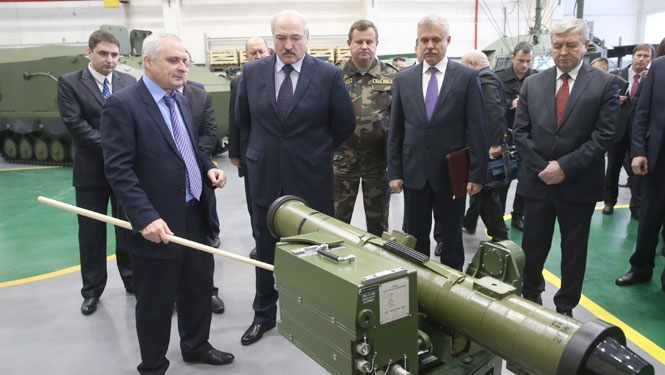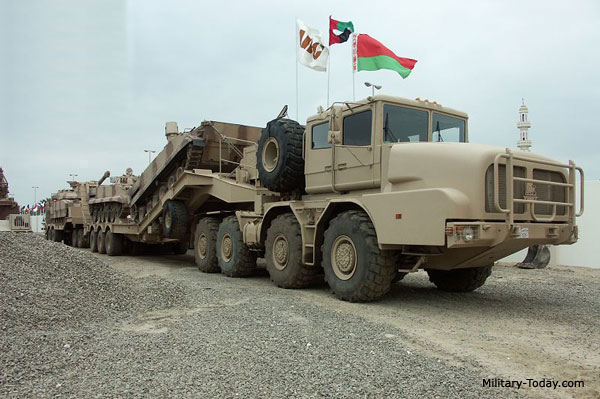Opinion: Is the EU Resistant to Belarus’s Europeanisation?

Since the start of the Ukrainian crisis, Belarus has experienced a decisive shift in policy. On the domestic front, there has been a strengthening of territorial defence forces, while internationally Minsk has shown willingness to reach out to a larger number of states as potential partners.
The potash deal allegedly signed with China in June 2016 is evidence of this, as well as military cooperation projects already in place. An increased interest in relations with countries other than Russia in the post-Soviet space as well as the Middle East is also indicative of such a trend.
Belarus's relationship with the so-called western world is a slightly different story. Relations between Belarus and the West, and the EU in particular, have always been fraught. They have traditionally developed in an irregular way, characterised by continued criticism of the current Belarusian political system and the enlargement of Brussels' structures of governance.
Recent trends in Belarusian relations with the EU: a hesitant reset and the importance of Russia
Since 2013, bilateral relations have seen some positive developments. It seems that Belarus wants to be seen as a sort of eastern Switzerland, posturing itself as a quasi-neutral actor during the Minsk peace talks. At the same time, the dropping in February 2016 of EU sanctions in connection with the release of certain Belarusian political prisoners has given some breath to economic exchange and political dialogue.
This seems to be indicative of a more general reset when it comes to relations with the West. As the Belarusian Institute of Strategic Studies has recently assessed, contacts with the EU and its member States have strengthened in both quality and intensity since the end of 2015 (see, for example, Lukashenka's visit to Rome last May).
However, such trends should not be overestimated. The domestic political situation, as well as Belarus's strong ties with Russia, would be difficult to adjust. Although relations with Moscow, in particular, are undergoing a period of reassessment, the status quo is unlikely to change too quickly.
Brussels, in fact, has shown neither willingness nor the means to decisively lead Belarus’ Europeanisation Read more
Belarus is heavily dependent on Russia both in import (about 60 percent of the total) and export (around 35 percent), and regular military structures are strictly coordinated. On the other hand, Russia cannot lose Belarus, if for no other reason than its relevance to Russian security and as a transit country for energy resources.
A further element impeding a substantial shift towards the West, often ignored in analyses of Belarus's international position, is the behaviour of the EU towards Minsk. Brussels, in fact, has shown neither willingness nor the means to decisively lead Belarus’ Europeanisation.
The EU's drawbacks: liberal-democratic prejudice and institutional frustration
The EU's paternalistic approach towards Belarus has been a primary factor in hindering positive bilateral developments. A cursory look at official documents issued by the Council of the EU or the European External Action Service's Fact Sheet on Belarus from February 2016 makes it clear that the EU's attitude towards Minsk is based on the assumption of the latter's lower moral status – a condition which Brussels intends to correct by means of pushing democratic standards and rule of law.
a further obstacle to Europeanisation seems to come from what may be called the EU's “cold interest” towards Belarus Read more
This assumption is based on a political prejudice against Belarus which – even if it may be well founded – clashes with the principle of equality and non-discrimination voiced by Belarusian authorities. They insist on it as a necessary pre-condition for any meaningful relations.
In addition to this cognitive relational dissonance, a further obstacle to Europeanisation seems to come from what may be called the EU's “cold interest” towards Belarus. Belarus's insignificant economic strength, its supposedly second-class political relevance, and an institutional frustration caused by a repeated failure to change the autocratic political composition of the country have all distanced Brussels and Minsk, chilling the liberal enthusiasm typical of the EU's foreign policy.
The diffusion of Brussels’ concerns and the wrong choice of interlocutors
These bilateral problems are compounded by other issues of a global nature negatively affecting the EU’s effectiveness. Internal security problems related to terrorism, nationalistic conflict between member states, and the renewal of turbulence in both the Eastern and Southern neighbourhoods have contributed to decidedly stagnant relations. This context means that there is neither much room for improvement, nor political willingness for relations to improve.
This especially holds true if one recognises the understandable reluctance of the EU to further antagonise Moscow by making risky intimations toward Belarus. An overt rapprochement between the two sides could lead to an over-reaction from Russia.
This is in fact not an unfounded fear, as certain events, such as the recent visit of highly placed US Defence officials to Minsk have been perceived by the Russian establishment as an outrage, further contributing to Russia's accumulating suspicions of Lukashenka’s regime.
As Áleś Čajčyc has written for Belarus Digest, ever since the Ukrainian crisis, nationalist elements in Russia (both among elites and the general population) have, in fact, “accused Lukashenka’s regime of being tolerant of ‘Nazis’ and ‘Russophobes’”.
even the dropping of sanctions fails to promote mutual trust and dialogue if something does not change in the quality of EU-Belarus discussions Read more
In this context, even the dropping of sanctions fails to promote mutual trust and dialogue if something does not change in the quality of EU-Belarus discussions. In fact, the EU has often shown a preference towards members of the opposition and civil society who have little impact on the situation in Belarus as legitimate interlocutors. Meanwhile the government is pushed to the background.
Even if this fits with EU political paradigms, it is ineffective. As emblematically represented by the case of the Dialogue on Modernization launched in 2012, this directly undermines the legitimacy of Belarusian authorities and the feasibility of the path they have chosen for their country. As it threatens the existing political structure, collaboration is rejected or obstructed by elites in Minsk.
All in all, it seems that the EU's approach to Minsk is inappropriate. EU offers a model of cooperation founded on a teacher-student basis. It clearly states its willingness to de-legitimise the political status quo of Belarus. Acting without clear interest, Brussels fails to offer a valid alternative to Russia and does not suit Belarus’s renewed interest to diversify international partners.
On the domestic front, this stubbornly persistent call for democratisation may be counter-productive to the state of human rights in the country. Unfortunately, such a process in Belarus could happen only as part of a top-down process.
As a consequence, putting pressure on Minsk and engaging with civil society actors may generate hostility within the Belarusian establishment towards Europeanisation. Meanwhile, high-level dialogue and peer-level discussions may make the regime feel legitimised, less threatened and thus more secure, hence opening up possibilities for political change.
Nicolò Fasola
Nicolò is a Contributor on Russia and the post-Soviet space for the Italian think tank Osservatorio di Politica Internazionale (OPI). He is an M.A. candidate in Interdisciplinary Research and Studies on Eastern Europe at the University of Bologna.



 The Minsk-based company Tetraedr is just one example. It already runs several production sites
The Minsk-based company Tetraedr is just one example. It already runs several production sites  The Belarusian military
The Belarusian military
